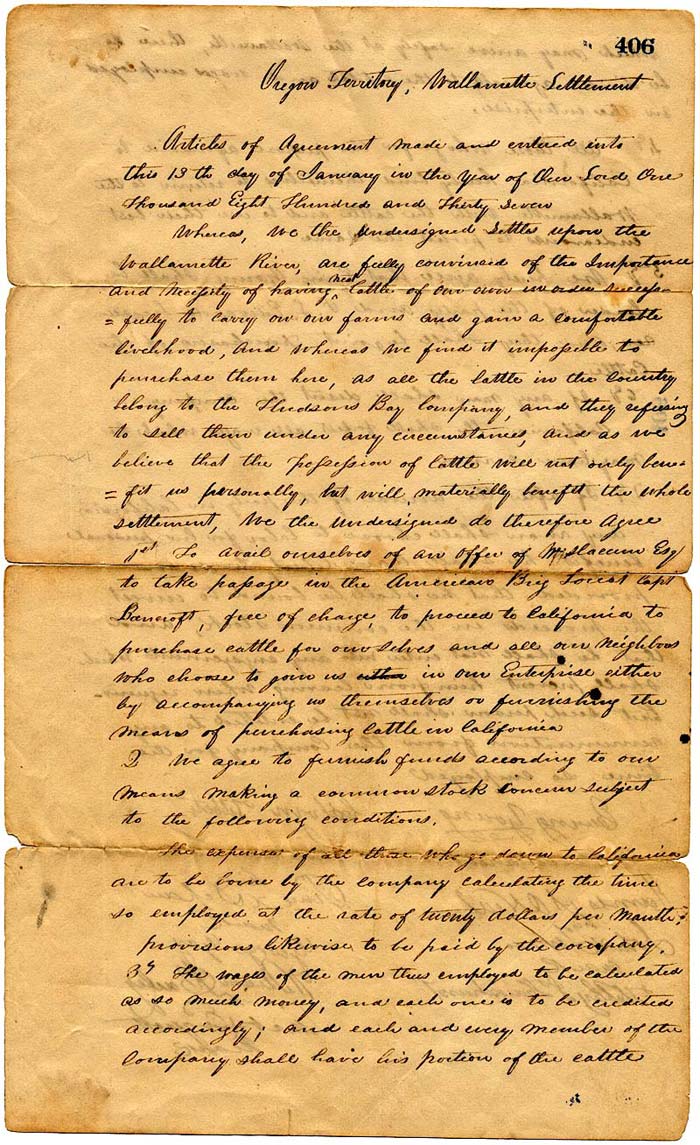The reason most settlers went to Oregon was because they could claim free land. In my first Oregon Trail novel, Lead Me Home, all I needed to know about the Oregon land laws was that settlers could file land claims once they got there. But in the sequel I am working on now, which takes place between 1848 and 1850, the nuances of the homesteading laws in Oregon are critical. So I have gone back to my research notes and done additional searching.
When my emigrant characters arrive in Oregon in October 1847, the Organic Act of 1845 was in effect. That law was adopted while the United States and Great Britain still disputed which nation ruled Oregon. The only clear authority in the region was Hudson’s Bay Company, chartered by Great Britain. But the Americans didn’t want to be governed by a British entity, so in 1843 some Oregonians had taken it upon themselves to pass laws, which resulted in the Organic Law of Oregon.
By 1845, the Organic Law of Oregon provided that each person could claim up to 640 acres in a square or oblong form. They had to mark the boundaries of the land they claimed, register the claim within twenty days in Oregon City, make permanent improvements within six months, and occupy the land within a year. If they did not occupy the land, they had to pay a tax of $5.00 per year, or the claim would be deemed abandoned.
My novel required more detailed information, however. I had male characters older than twenty-one, who I assumed were eligible to file claims. But what about men younger than twenty-one? What about African Americans? Could a woman file a claim? What if the man left the land after filing? One of my characters might be widowed and want to keep the claim (I won’t say more, because I don’t want to give anything away!)—can she get the land or not?
I discovered that the Oregon Provisional Legislature specified that
—Only free males over 18 years old could hold land, unless they were married, and then men could hold land if they were under 18 years old
—Blacks could not own land, even free Blacks
—Widows could hold land, but single and married women could not

I also learned that there were no inheritance laws in Oregon in the 1840s, so if someone died, what happened to his property was unclear. My poor widow might be out in the cold, or at least might have a legal fight on her hands.
By treaty between the United States and Great Britain, Oregon Territory became part of the United States in 1846. That led to a new Territorial Legislature, which adopted new land laws in 1849. That is important to my story, because the timeline of my novel runs until late 1850.
The new law, called the Donation Land Act, effectively nullified all existing land claims, though most could be refiled without problem. This act gave 320 acres to every white male citizen of the United States over eighteen-years of age who filed a claim.
If a man was married, his wife could also receive 320 acres, upon proof of marriage, which would result in the same 640 acres that had previously been available. The husband and wife each owned half of the total grant in their own name, and this was one of the first laws in the United States to allow married women to own property under their own name.
Men arriving after December 1, 1850, could only claim 160 acres, with an additional 160 acres for their wives. Over the next few years, the land laws in Oregon became less generous. Fewer acres were granted, and some money was required. But those are not relevant to this book. Maybe I’ll need to do more research in the future, but not now. I’m hoping I have enough knowledge now to flesh out the plot in my sequel over the next several months.
When have you struggled to pin down details on a project of yours?




Every book I write requires at least some research. It’s not my favorite part of a project, but it’s essential to writing an authentic and believable story. And, for me, having the details straight, makes the book easier to write!
Darlene,
I agree. I heard another author say she doesn’t research until after she writes, which sounds backwards to me.
The hard part for me is knowing when to stop the research and start the writing . . . knowing I’ll still have a few holes to fill in later.
Theresa
Just wanted to tell you that I thoroughly enjoyed Lead Me Home. I am familiar with a lot of the terrain also and could imagine what things looked like as I read. Hope to read the next in the series soon.
Thank you, Virginia. I’m hoping to have the sequel out next fall, but it’s going slowly, so we’ll see.
Theresa